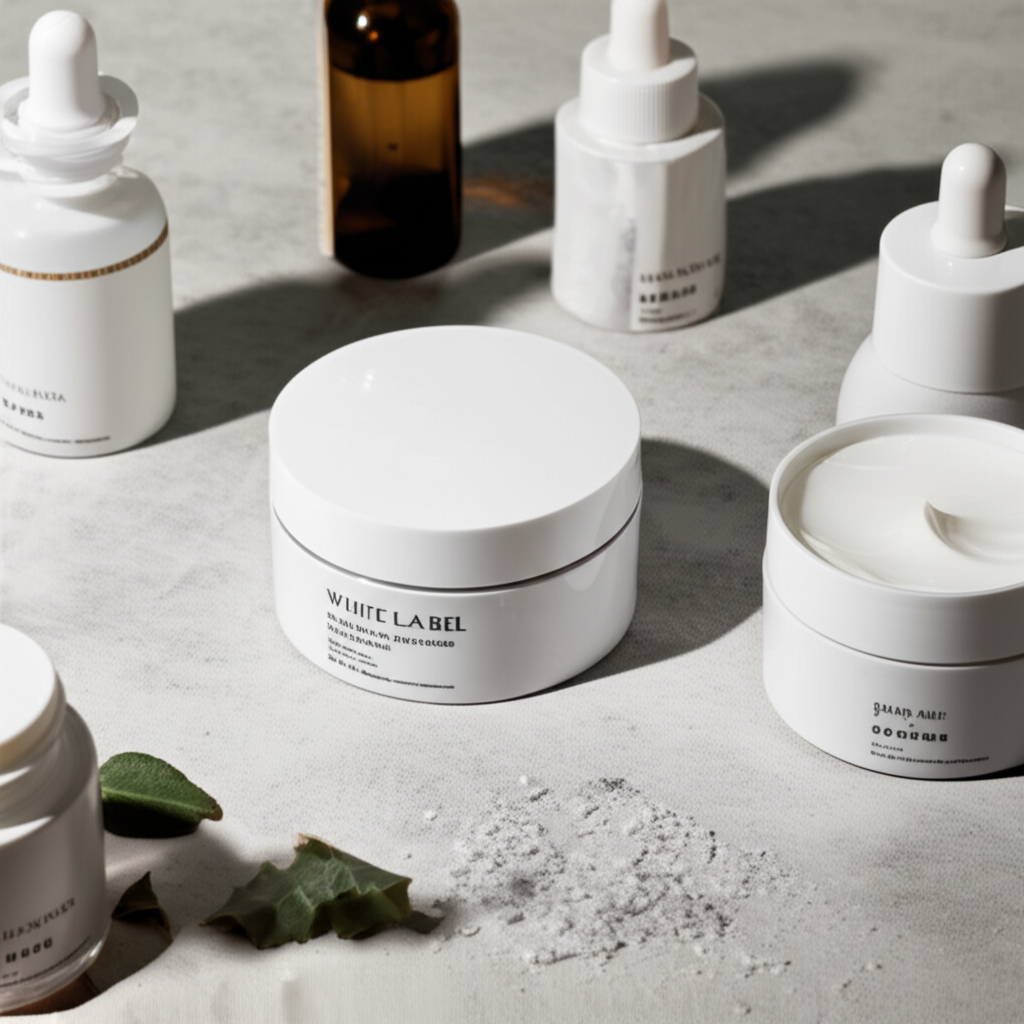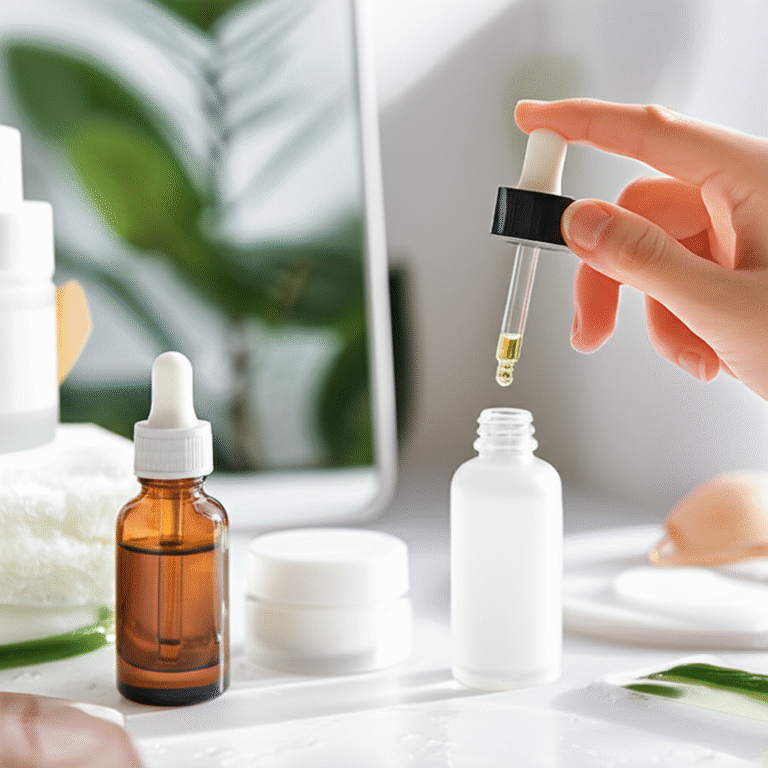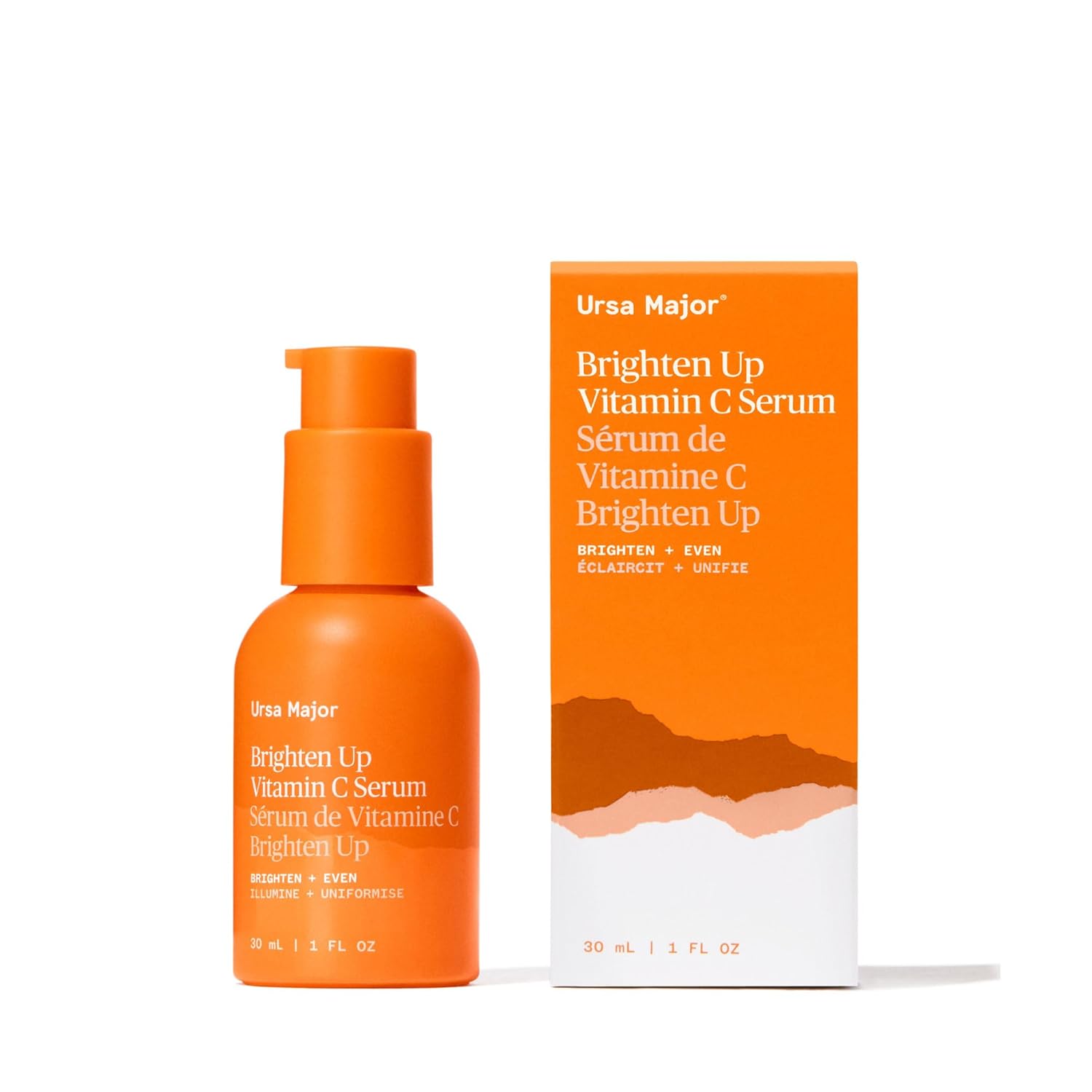White Label Skin Care – White label skin care offers a straightforward path to achieving consistent, glowing skin results. With the right guidance, you can easily build a personalized routine that delivers effortless improvements, making healthy skin more accessible than ever.
Finding the right skin care can feel like a puzzle. So many products, so many claims! It’s easy to get overwhelmed, wondering where to start or if you’re even using the right things. Many of us dream of clear, radiant skin, but the journey to get there often seems complicated and expensive. But what if I told you there’s a simpler way? A way to unlock proven, effortless results without the confusion. If you’re ready to finally understand what your skin needs and how to get that beautiful glow, stick around. We’re going to break down exactly how to achieve it, step by step.
What is White Label Skin Care and Why It’s Your Secret Weapon

Have you ever used a fantastic skin care product that you absolutely loved, only to find it hard to get your hands on again, or perhaps it was rebranded under a different name? That’s often the magic of white label skin care! Essentially, white label skin care refers to products manufactured by one company but then packaged and sold under another company’s brand name. Think of it like a skilled baker making delicious cookies, and then a local café puts their own label on them. The quality comes from the expert baker, but the brand experience is from the café.
For your skin, this model is a game-changer. It means you can access expertly formulated, high-quality skin care without the guesswork of researching countless brands or the expense of developing formulas from scratch. These products are often created with proven ingredients and scientific backing by manufacturers who specialize in skincare. When you choose white label products, you’re choosing effectiveness, consistency, and simplicity. It’s about leveraging existing expertise to get you the results you desire, fast and frustration-free.
The Core Benefits: Why Go White Label for Your Skin?
Choosing white label skin care isn’t just about a simpler shopping experience; it’s about smart, effective skin care. These products are designed to deliver measurable improvements, making them perfect for beginners and seasoned beauty enthusiasts alike. Let’s explore some of the key advantages:
- Expert Formulation: White label products are typically developed by experienced manufacturers who understand skin science and effective ingredients. This means you’re getting scientifically sound formulas without needing to be a chemist yourself.
- Cost-Effectiveness: By cutting out the extensive research and development costs of creating a new formula, white label allows for high-quality products at more accessible price points. You get premium ingredients and efficacy without the premium branding markup.
- Proven Efficacy: These formulas are often based on established, successful formulations. Manufacturers have already tested and refined them, meaning you’re likely to see tangible results.
- Simplicity in Choice: Instead of a confusing array of options, white label helps streamline your choices. You can focus on finding products that target your specific concerns, knowing the formulation is already solid.
- Consistency: Manufacturers aim for consistent quality across their batches, ensuring that the product you love today will perform the same way tomorrow.
Understanding Your Skin Type: The Foundation of Your Routine
Before diving into specific white label products, the most crucial step is understanding your skin. Knowing your skin type helps you pick the right heroes for your personal skin story. It’s like choosing the right tools for a job – the better the fit, the better the outcome. Most people fall into one of these categories. Sometimes, your skin might show traits of more than one type, or it can change depending on the season or your hormones, but this will give you a great starting point!
Common Skin Types:
- Oily Skin: Characterized by excess sebum production, often leading to a shiny appearance, enlarged pores, and a tendency for breakouts.
- Dry Skin: Lacks sufficient moisture and oil, often feeling tight, rough, flaky, or itchy. It can also look dull.
- Combination Skin: A mix of oily areas (usually the T-zone: forehead, nose, and chin) and normal or dry areas (cheeks).
- Normal Skin: Well-balanced skin that isn’t too oily or too dry, with minimal imperfections and a smooth texture.
- Sensitive Skin: Easily irritated by products or environmental factors, often showing redness, burning, itching, or stinging.
To figure out your skin type, try the “bare-face method.” Wash your face with a gentle cleanser, pat it dry, and wait about 30 minutes without applying any products. Then, observe how your skin looks and feels. Does it feel tight and dry everywhere? Oily all over? Shiny in the T-zone but dry on the cheeks? Or comfortable and balanced? This simple test provides clues. Understanding this will guide you in selecting the most effective white label products for your unique needs.
Building Your Simple White Label Routine: Step-by-Step
Creating an effective skin care routine doesn’t need to be complicated. With white label products, you can build a powerful regimen that targets your skin concerns with straightforward, proven steps. The key is consistency and choosing products that work together. Here’s a basic yet brilliant routine you can easily adapt with white label options:
Step 1: Cleanse
Cleansing is the essential first step to remove dirt, oil, and impurities. It preps your skin to better absorb subsequent treatments. For white label, look for gentle, effective cleansers. If your skin leans oily or acne-prone, a foaming cleanser or one with salicylic acid can be beneficial. For dry or sensitive skin, a cream or hydrating cleanser is ideal.
Step 2: Treat (Using Serums)
Serums are concentrated treatments that deliver active ingredients deep into the skin. This is where you can really target specific concerns like fine lines, dark spots, or hydration. Popular white label serums often feature powerhouses like Vitamin C (for brightening), Hyaluronic Acid (for hydration), or Retinol (for anti-aging and texture).
A great starting point for beginners with white label serums:
- For Brightness & Antioxidant Protection: A Vitamin C serum.
- For Hydration & Plumping: A Hyaluronic Acid serum.
- For Texture & Anti-Aging (use at night, start slow): A Retinol serum.
You can layer serums, but it’s best to start with one or two to see how your skin reacts. Generally, you apply them from thinnest to thickest consistency.
Step 3: Moisturize
Even oily skin needs moisture! Moisturizers lock in hydration and protect your skin barrier. White label moisturizers come in various formulations – light lotions for oily/combo skin, richer creams for dry skin, and even oil-free options for acne-prone types.
Choosing the right moisturizer texture is important:
| Skin Type | Recommended Moisturizer Texture | Why It Works |
|---|---|---|
| Oily | Lightweight, oil-free lotion or gel | Provides hydration without adding excess oil or clogging pores. |
| Dry | Rich cream or balm | Deeply hydrates and creates a barrier to prevent moisture loss. |
| Combination | Lightweight lotion for T-zone, slightly richer for cheeks | Balances hydration across different areas of the face. |
| Normal | Lotion or cream (your preference) | Maintains skin’s natural balance and hydration. |
| Sensitive | Fragrance-free, hypoallergenic cream or lotion | Soothes and hydrates without irritating ingredients. |
Step 4: Protect (AM Only – Sunscreen)
This is arguably the MOST important step for long-term skin health and anti-aging. A broad-spectrum SPF 30 or higher sunscreen protects your skin from damaging UV rays that cause premature aging and increase the risk of skin cancer. White label sunscreens are readily available in various textures, from mineral to chemical, in lotions, creams, and sprays.
According to the American Academy of Dermatology, applying sunscreen daily is crucial. You can find excellent broad-spectrum options in white label lines that feel comfortable on the skin and don’t leave a white cast.
Key White Label Ingredients to Look For
When you’re browsing white label skin care, knowing which ingredients are your skin’s best friends can make all the difference. These are ingredients backed by science and known for their ability to improve skin texture, tone, and overall health. Focusing on these can help you make informed choices for effortless, proven results.
- Hyaluronic Acid: A humectant that draws moisture from the air into your skin, leaving it plump and hydrated. It’s excellent for all skin types, especially dry and dehydrated skin.
- Vitamin C (L-Ascorbic Acid): A powerful antioxidant that brightens the complexion, fades dark spots, and protects against environmental damage. It also supports collagen production, helping with firmness.
- Niacinamide (Vitamin B3): A multi-tasker that helps improve skin’s barrier function, reduce redness, minimize the appearance of pores, and regulate oil production. Great for oily, acne-prone, and sensitive skin.
- Retinoids (Retinol, Retinal): Derivatives of Vitamin A that are gold standards for anti-aging. They promote cell turnover, boost collagen production, improve skin texture, and help with acne. Start with lower concentrations and use at night.
- Salicylic Acid (BHA): A beta-hydroxy acid that is oil-soluble, meaning it can penetrate pores to exfoliate and clear out debris. Ideal for oily, acne-prone, and congested skin.
- Glycolic Acid (AHA): An alpha-hydroxy acid that exfoliates the skin’s surface, improving texture, brightening skin tone, and reducing the appearance of fine lines. Best for most skin types, but start slowly if you have sensitive skin.
- Ceramides: Lipids naturally found in the skin barrier. They help retain moisture and protect the skin from external irritants. Essential for dry, sensitive, and aging skin.
You’ll find these hero ingredients in many white label serums, moisturizers, and cleansers. Look for them in the ingredient list to maximize your results.
AM vs. PM Routines: Tailoring for 24/7 Glow
Your skin’s needs change throughout the day. During the day, your skin is exposed to environmental stressors like pollution and UV rays, requiring protection. At night, it’s in repair mode, regenerating and renewing. Tailoring your white label routine for AM and PM can significantly boost your results.
Your Morning (AM) Routine: Protection and Prevention
The goal of your morning routine is to protect your skin from the day’s environmental damage and prepare it for makeup application if you wear it.
- Cleanse: A splash of water or a gentle cleanser to refresh your skin.
- Serum (Optional but Recommended): A Vitamin C serum is excellent for antioxidant protection and brightening.
- Moisturize: Apply a suitable white label moisturizer for your skin type.
- Sunscreen: Apply broad-spectrum SPF 30 or higher. This is non-negotiable!
Think of your AM routine as creating a protective shield for your skin.
Your Evening (PM) Routine: Repair and Rejuvenation
Your nighttime routine is about cleansing away the day’s buildup and applying treatments that work while you sleep to repair and rejuvenate your skin.
- Cleanse: Use a proper cleanser to remove makeup, sunscreen, and impurities. Double cleansing is an option if you wear heavy makeup or sunscreen – start with an oil-based cleanser or micellar water, followed by your regular water-based cleanser.
- Treat (Serums/Exfoliants): This is the time for potent actives like Retinol or exfoliating acids (AHAs/BHAs). Start with once or twice a week for these and gradually increase frequency as your skin tolerates it. If you’re using both, alternate nights to avoid over-exfoliation.
- Moisturize: Apply a white label moisturizer. You might opt for a slightly richer one at night, especially if you’re using retinoids or acids.
Your PM routine is dedicated to helping your skin heal and regenerate.
Incorporating Targeted Treatments with White Label Products
Beyond the basic routine, white label brands often offer fantastic targeted treatments for specific concerns. These can be integrated into your routine a few times a week to give your skin an extra boost. Here are a few common concerns and how white label products can help:
For Acne and Breakouts:
Look for white label cleansers or spot treatments containing Salicylic Acid (BHA) or Benzoyl Peroxide. Niacinamide serums can also help regulate oil and reduce inflammation. A gentle clay mask a couple of times a week can draw out impurities.
For Hyperpigmentation and Dark Spots:
Your go-to ingredients are Vitamin C serums for brightening and fading dark spots. Niacinamide also plays a role here by inhibiting melanin transfer. Exfoliating acids like Glycolic Acid or an alpha-hydroxy acid (AHA) blend can help shed pigmented surface cells. Consistent sunscreen use is CRUCIAL to prevent worsening dark spots.
For Fine Lines and Wrinkles:
Retinol is the star ingredient. In white label lines, you’ll find various strengths. Start with a low percentage (e.g., 0.1% to 0.3%) and use it only at night, a few times a week. Hyaluronic Acid serums provide immediate plumping hydration, temporarily minimizing the appearance of fine lines. Peptides in serums and moisturizers can also support collagen production.
It’s important to introduce new active ingredients one at a time and monitor your skin’s reaction. Patience and consistency are key!
Table: Common Skincare Concerns & Recommended White Label Ingredients
Here’s a quick reference guide to help you match common skin concerns with effective white label ingredients:
| Skincare Concern | Key White Label Ingredients | How They Help | Typical Product Types |
|---|---|---|---|
| Acne & Breakouts | Salicylic Acid (BHA), Benzoyl Peroxide, Niacinamide, Sulfur | Exfoliate pores, reduce inflammation, regulate oil, kill acne-causing bacteria. | Cleansers, Toners, Spot Treatments, Masks, Serums |
| Hyperpigmentation (Dark Spots, Sun Spots) | Vitamin C, Niacinamide, Alpha Arbutin, Kojic Acid, Glycolic Acid (AHA) | Brighten skin tone, fade dark marks, inhibit melanin production, promote cell turnover. | Serums, Treatments, Exfoliants, Masks |
| Fine Lines & Wrinkles | Retinol, Bakuchiol, Peptides, Hyaluronic Acid, Ceramides | Boost collagen, increase cell turnover, hydrate, improve skin elasticity, smooth texture. | Serums, Moisturizers, Eye Creams, Treatments |
| Dryness & Dehydration | Hyaluronic Acid, Glycerin, Ceramides, Squalane, Shea Butter | Attract and retain moisture, strengthen skin barrier, prevent water loss. | Moisturizers, Serums, Cleansers, Masks |
| Redness & Sensitivity | Niacinamide, Centella Asiatica (Cica), Chamomile, Allantoin | Soothe inflammation, calm irritation, strengthen skin barrier, reduce redness. | Serums, Moisturizers, Cleansers, Masks |
Tips for Beginners: Making White Label Work for You
Starting with white label skin care is a smart move, but here are some extra tips to ensure you’re getting the best, most effortless results:
- Start Slow: When introducing new active ingredients (like Retinol or strong acids), start with lower concentrations and use them only a few times a week. Let your skin adjust before increasing frequency or strength.
- Patch Test: Always patch-test new products on a small area of skin (like behind your ear or on your inner arm) for 24-48 hours to check for any adverse reactions before applying to your face.
- Consistency is Key: The biggest secret to seeing significant improvements is to stick with your routine daily. Even simple, consistent steps are more effective than a complex routine used sporadically.
- Listen to Your Skin: Pay attention to how your skin feels. If it becomes red, irritated, or overly dry, scale back on active ingredients or switch to gentler products.
- Don’t Overdo It: Using too many active ingredients at once can overwhelm your skin and lead to irritation. Stick to one or two.
FAQ
Q1: How often should I use Jaclyn Smith Skincare products?
Most Jaclyn Smith skincare products, especially cleansers, moisturizers, and sunscreens, are designed for daily use, both in the morning and evening. Targeted treatments like serums can be used once or twice daily depending on the product and your skin’s needs. Always follow the specific instructions on the product label.
Q2: I have sensitive skin. Are Jaclyn Smith Skincare products suitable for me?
Jaclyn Smith Skincare is designed to be gentle and effective. However, individual sensitivities vary. If you have sensitive skin, it’s always a good idea to patch test a small amount of the product on a discreet area (like behind your ear) before using it on your face. Products labeled “for sensitive skin” or “gentle” may work best for you.
Q3: What is the correct order to apply my skincare products?
The general rule of thumb is to apply products from thinnest to thickest. For example:
-
Cleanser
-
Toner (if used)
-
Serum
-
Eye Cream
-
Moisturizer
-
Sunscreen (in the morning).
This ensures that lighter, active ingredients penetrate the skin effectively before sealing them with heavier creams.
Q4: How long will it take to see results from using Jaclyn Smith Skincare?
Results vary based on individual skin concerns, but improvements in hydration and skin texture can often be noticed within a few days to a week. For significant changes, such as reducing fine lines or fading dark spots, it typically takes 4-12 weeks of consistent use as skin renewal cycles vary.
Q5: Can I use Jaclyn Smith Skincare products if I have acne-prone skin?
Yes, Jaclyn Smith Skincare products can work for acne-prone skin. Look for products that are non-comedogenic (won’t clog pores) and include ingredients like salicylic acid for acne treatment. Gentle cleansing, proper hydration, and sun protection are also crucial steps to balance oil production and prevent breakouts.
Q6: What’s the difference between a serum and a moisturizer?
Serums are lightweight, concentrated treatments designed to target specific skin concerns (like fine lines, pigmentation, or dehydration). Moisturizers are thicker creams designed to hydrate the skin and lock in moisture, forming a protective barrier. Typically, serums are used first, followed by a moisturizer to seal in hydration.
Q7: Is SPF really important for achieving a “glow”?
Yes, SPF is essential for protecting your skin from sun damage, which can cause dullness, dark spots, and premature aging. Consistent daily use of sunscreen allows your skin to maintain its natural glow without being compromised by UV rays, making it the most important step in your skincare routine for long-term radiance.
End Remarks
Achieving your “essential glow” with Jaclyn Smith Skincare is all about simplicity, consistency, and high-quality ingredients. Whether you’re a skincare beginner or just looking to streamline your routine, Jaclyn Smith provides the essential products to help you achieve hydrated, healthy-looking skin with minimal effort. With a focus on hydration, gentle cleansing, and protective care, you can unlock visible results that boost your confidence and leave your skin glowing naturally.
By incorporating Jaclyn Smith’s easy-to-follow products into your daily routine, you’re setting yourself up for a radiant complexion that doesn’t require a complicated regimen. Whether you’re using a cleanser, hydrating serum, or nourishing moisturiser, the goal is to make skincare a simple, enjoyable part of your day while treating your skin with the care it deserves.
Remember, achieving that glowing complexion is a journey, not a race. With patience and consistency, you’ll unlock the healthy, radiant skin you’ve always desired. Start today with Jaclyn Smith Skincare, and take the first step toward revealing your essential glow !



